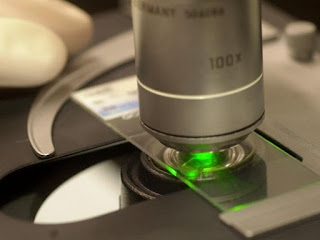
There is good news out of Washington, D.C., for everyone who believes that we need to strengthen our investments in research to ensure that the United States remains the world's leader in biomedical research and health-care discovery.
In May, a bipartisan initiative meant to build that strength — the 21st Century Cures Act — won the unanimous support of the House of Representatives Energy and Commerce Committee, sending it to the full House for a vote.
The bill includes several important initiatives to promote research and speed the spread of innovation, with key provisions that would boost funding for the National Institutes of Health.
As the leaders of the Indiana University School of Medicine and Indiana University Health, we are urging widespread bipartisan support for this proposal. Indeed, two Energy and Commerce Committee members from Indiana, Larry Bucshon and Susan Brooks, have already made their support clear. Rep. Jackie Walorski and Rep. Luke Messer have also signed on as cosponsors and we hope the rest of the Hoosier delegation will do the same.
The 21st Century Cures Act would authorize $1.5 billion annual additions to the NIH's budget for three years, but more importantly it would create a new NIH Innovation Fund of $2 billion per year over five years. Why is the Innovation Fund so important? It would be funded outside the normal budgeting process, making it less susceptible to the cuts we've seen recently from partisan budget battles and sequesters.
Why does this matter? For more than a decade, the pace of scientific change has grown dramatically, but funding to support it has not. In fact, after adjusting for inflation the NIH annual budget, now at about $31 billion, buys $5 billion less research than it did a decade ago.
In 2000, scientists announced they had deciphered the human genome, the genetic blueprint written in our DNA. Now, 15 years later, we stand at the edge of an exciting new era of precision medicine, in which a person's genetic makeup will enable doctors to determine precisely which drug will best attack individual cancer cells, best lower blood pressure or best treat heart disease.
These advances will come more slowly, or perhaps not at all, if we fail to support research adequately. We want our scientists working on new discoveries, not spending their time on one grant proposal after another, hoping their next one will be among the 10 percent or so of all NIH grant proposals that are actually approved currently.
When they have the time and resources, our scientists make discoveries that make a difference. Just a few years ago, IU School of Medicine researchers discovered the first effective treatment for one of the most common genetic disorders, one that leaves children fighting disfiguring, and sometimes life-threatening, tumors. Now children from all over the country are being treated for that disease at Riley Hospital for Children at IU Health.
Much has been made of reports of partisan gridlock in Congress in recent years, but the 21st Century Cures Act demonstrates that with good-faith fact-gathering and bipartisan cooperation, important work can be accomplished. We applaud the efforts of Rep. Fred Upton, R-Mich., chairman of the House Energy and Commerce Committee, and Diana DeGette, D-Colo., for their work on this bill
We hope you'll join us in urging support for this important legislation.
Jay L. Hess, M.D.
Vice President for University Clinical Affairs, Indiana University
Dean, IU School of Medicine
Dan Evans
President and Chief Executive Officer, Indiana University Health
Source : indystar
We Are Fossasia Stay Connected With Us On Twitter . . . ! ! !
No comments:
Post a Comment